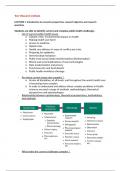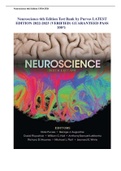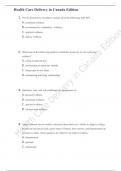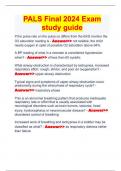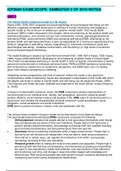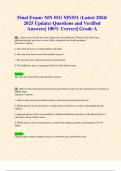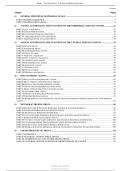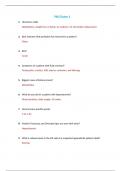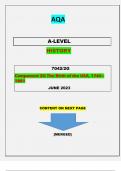Samenvatting
Summary Lectures and Doing Research in the Real World - Research methods for health sciences (AM_1225)
- Instelling
- Vrije Universiteit Amsterdam (VU)
Summary based on the learning objectives from each lecture. It contains the information out of the lectures combined with the book of Gray.
[Meer zien]
